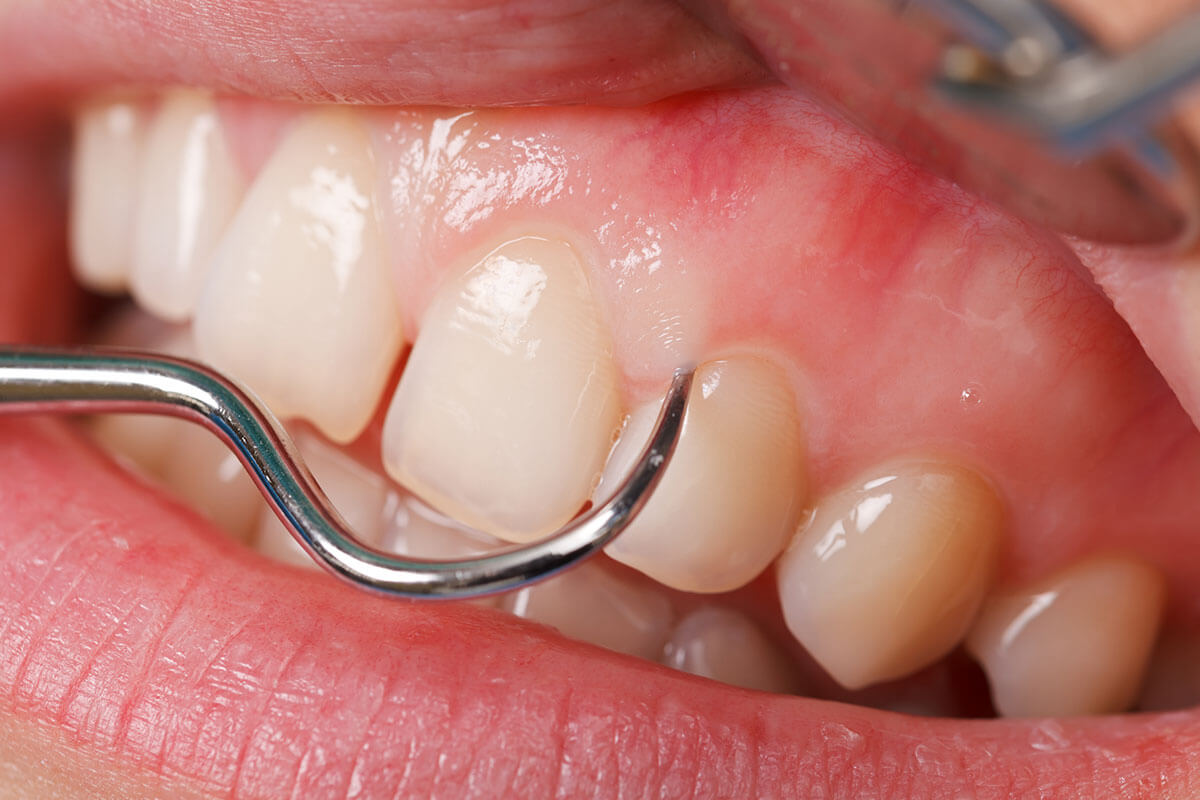Scaling and Root Planing



Dental scaling is a non-surgical treatment carried out by the dentist to treat the gums and remove plaque accumulation in the teeth, by planning of the roots of the teeth, specifically above and below the gum line, with the aim of treating gum recession, removing dental plaques, peeling the teeth from hard tartar and accumulated bacteria, and helping the gums reattach to the teeth, and is considered a more in-depth procedure than a regular cleaning.
At Tadawi Medical center, we offer you all advanced services and techniques for scaling and root planing, under the supervision of expert doctors and in a safe clinic that specializes in cleaning gums from tartar. It also provides complete care for patients with gum problems and tooth sensitivity.
How is deep cleaning of teeth done?
3 steps to deep cleanings, which are:
1. Tooth surface cleaning
deep gum cleaning of tartar and removing plaque from the surface of the teeth and from below the gum line, using hand tools or ultrasound.
2. Root scaling
scaling and root planing above and below the gum line using scaling, scraping and root peeling tools, in order to remove plaque and tartar from inside the roots of the teeth, in addition to polishing rough spots such as old fillings, and killing bacteria and preventing their reproduction using oral antibiotics.
3. Check up for dental health assessment
You need at least two visits to the doctor to ensure the health of the gums and teeth. Doctors also advise periodic examination every 4 months to check on the condition of the gums and to detect infections and treat them early.
What happens after deep cleaning of the gums?
Cleaning the gums requires care and attention from the patient to maintain the integrity and health of the gums:
- Brushing the teeth every day with brushing and toothpaste to ensure that the teeth and gums are clean and that bacteria do not accumulate on them.
- Use the toothpaste recommended by the doctor and use mouthwash to kill germs and bacteria in the mouth.
- Organizing visits to the dentist to clean plaque and treat gum problems such as bleeding and excessive sensitivity.
- Avoiding food and drinks until the anesthesia wears off, so as not to hinder the healing process.
- Avoid hard foods that get stuck in the gums and acidic foods that cause tooth sensitivity.
- Take antibiotics prescribed by the doctor to prevent infection, and relieve pain with painkillers.
- Use ice packs to reduce swelling if it occurs, and if you do not feel better, consult a doctor immediately.
What qualifies a patient for scaling and root planing?
- People with gum disease such as swelling, redness, and receding of the gums from the teeth.
- A change in the shape of the teeth and the formation of voids or the occurrence of large blockages between the teeth.
- Bad taste, bad breath, and pain when chewing.
- Gums inflammation and pus and bruising around the gums.
Is tooth scaling painful?
Deep cleaning of the teeth causes some pain to the patient resulting from gums scratching surrounding the teeth from the inside and outside, especially for those who suffer from gum sensitivity.
For this reason, the doctor performs local anesthesia for the patient to reduce the feeling of discomfort during deep gum cleaning, and the unpleasant feeling and sensitivity may last for three days, which is normal and not a cause for concern.
Does scaling damage your teeth?
teeth scaling doesn’t cause any serious damage to the teeth, due to the development techniques used in the deep cleanings, but it does cause some temporary side effects such as:
- Fatigue and stress due to keeping the mouth open for a long time and swelling in the mouth.
- Bleeding gums, tooth sensitivity, and pain persisting for a few days.
- Numbness and loss of sensation in the mouth, cheeks and tongue, which hinders the movement of chewing food.
- The appearance of spaces between the teeth due to cleaning the accumulations of tartar and bacteria between the teeth.
- Bacteria buildup under the gum line, exposing the roots of the teeth due to improper brushing.
How long does dental scaling last?
Deep dental scaling sessions depend on the amount of plaque accumulated in the teeth and gums, and the procedure usually requires only one or two sessions, and the process takes only one hour.
What is the cost of teeth scaling?
The price of root scaling depends on the clinic and the country in which the deep gum cleaning takes, and also according to the condition of the teeth.
BOOK NOW